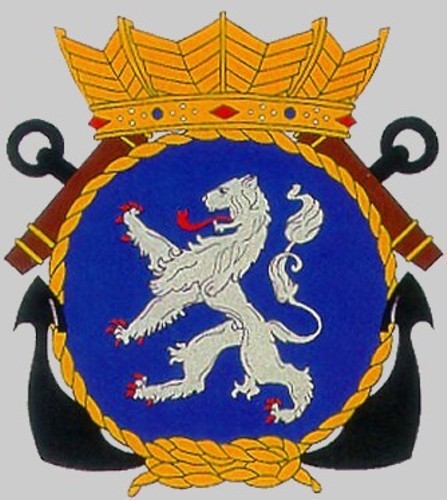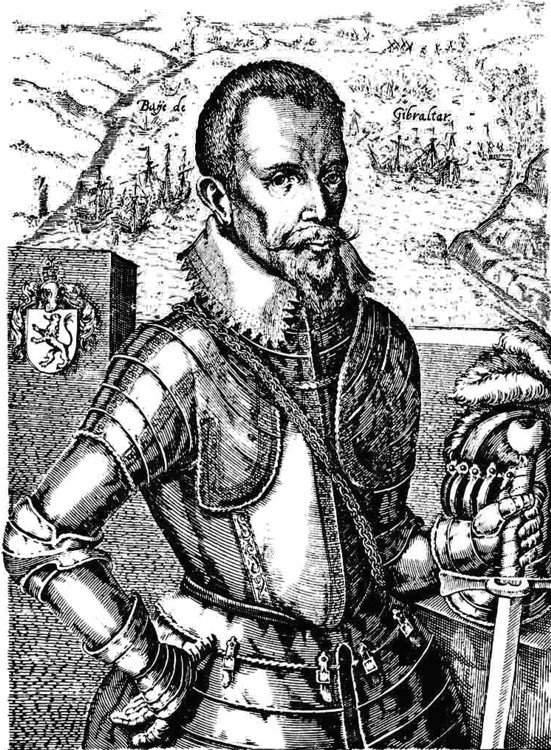 |
||
|
HOME
|
US Navy -
ships
|
US Navy - air
units
|
USMC - air
units
|
International
Navies
|
Weapon Systems
|
Special Reports |
||
|
Royal Netherlands Navy / Koninklijke Marine
- Guided Missile
Frigate F 812 HNLMS Jacob van Heemskerck |
||
|
||
| 12/24 | ||
|
Type,
class: Jacob van
Heemskerck
class Guided Missile Frigate (Luchtverdedigingsfregat / L-Fregat) Builder: Koninklijke Maatschappij De Schelde / KMS (Royal Schelde Shipbuilding, Vlissingen, The Netherlands) STATUS: Laid down: January 21, 1981 Launched: November 5, 1983 Commissioned: January 15, 1986 Decommissioned: December 2, 2004 Fate: sold to Chile / renamed FFG-14 Almirante Latorre Namesake: Vice Admiral Jacob van Heemskerck (1567-1607) Ship's motto: ? Technical Data: see INFO > Jacob van Heemskerck class Guided Missile Frigate |
||
| images | ||
 with SMART-S radar instead of the DA-05 radar (main mast) - 2004 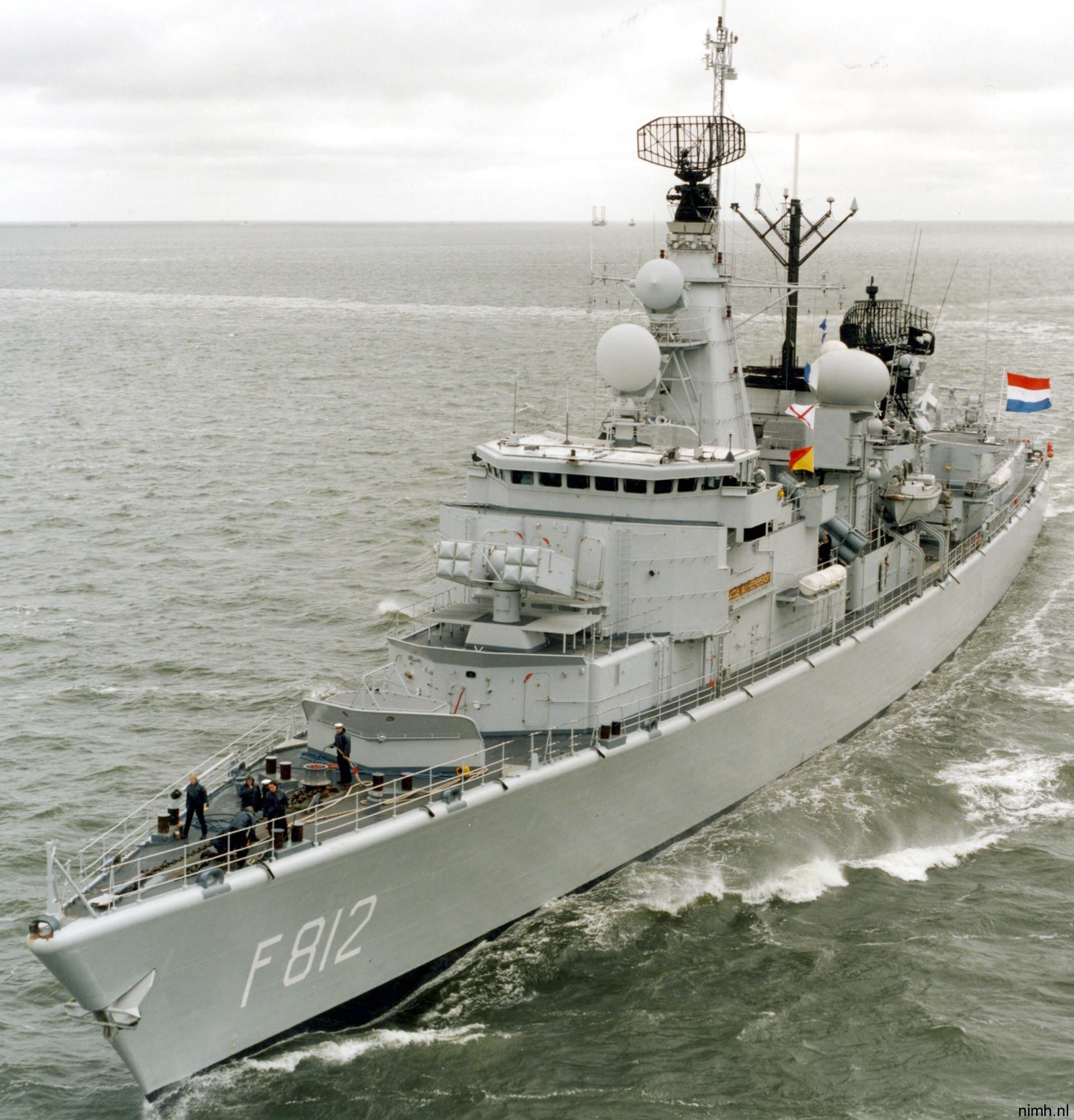 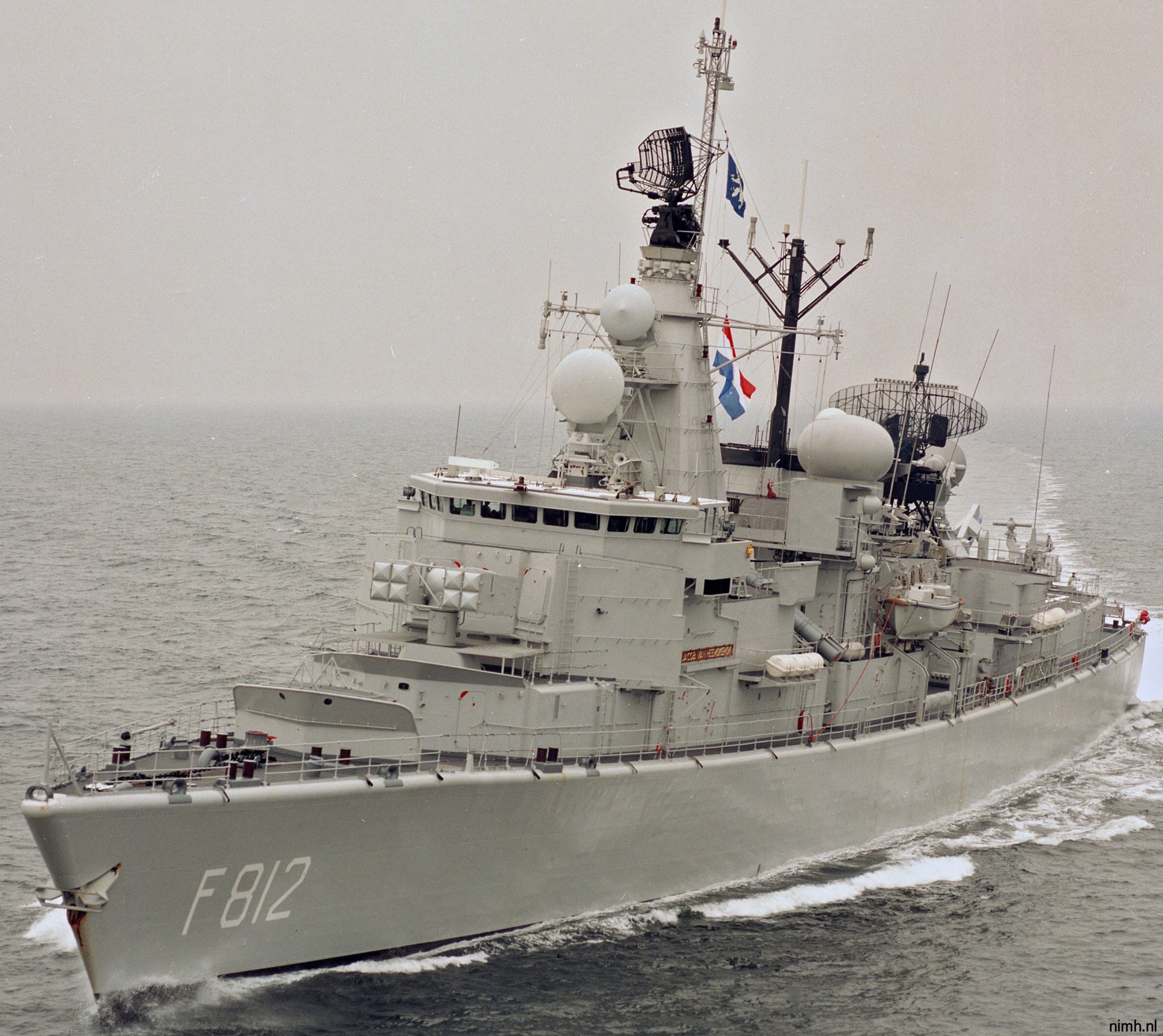 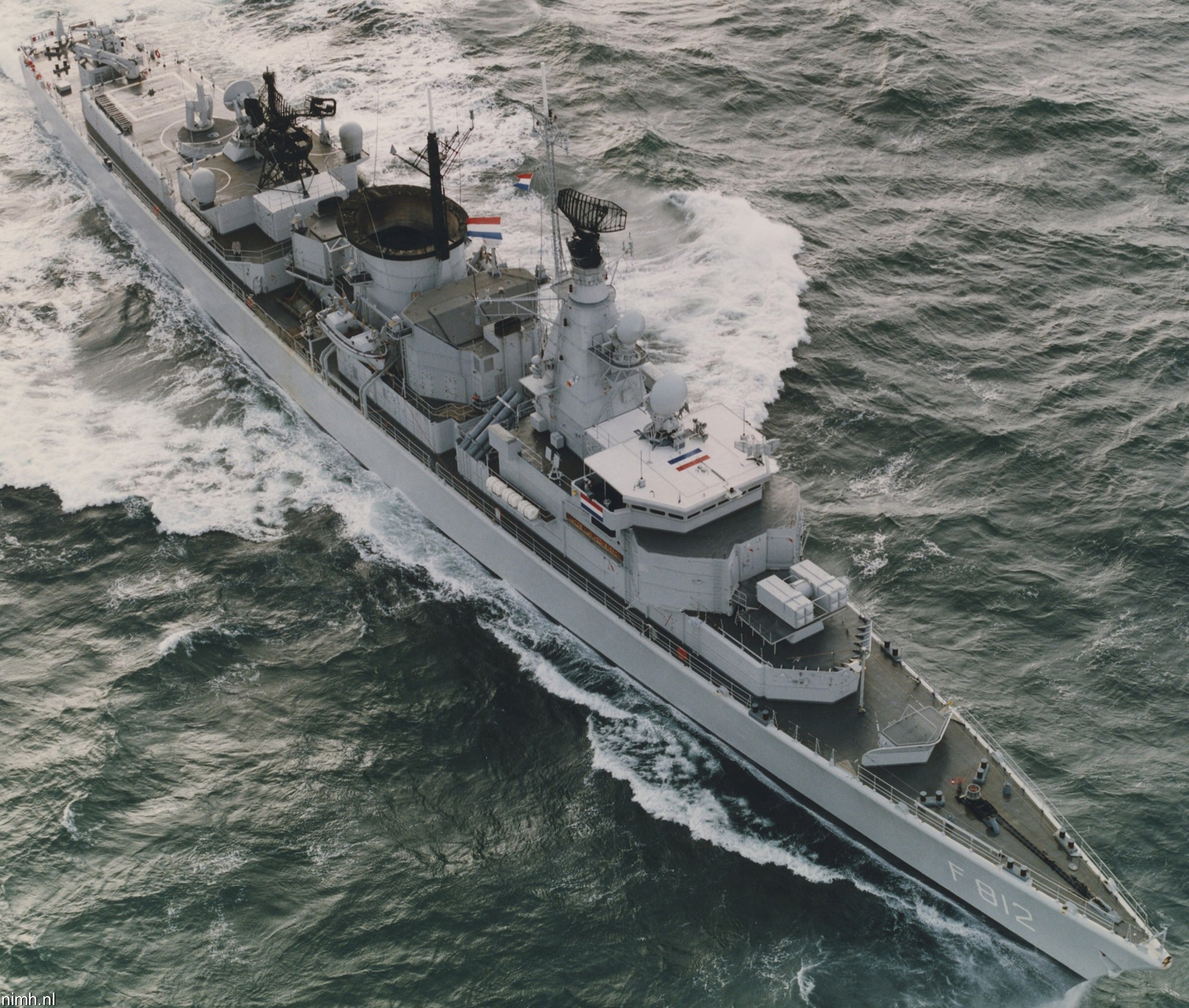 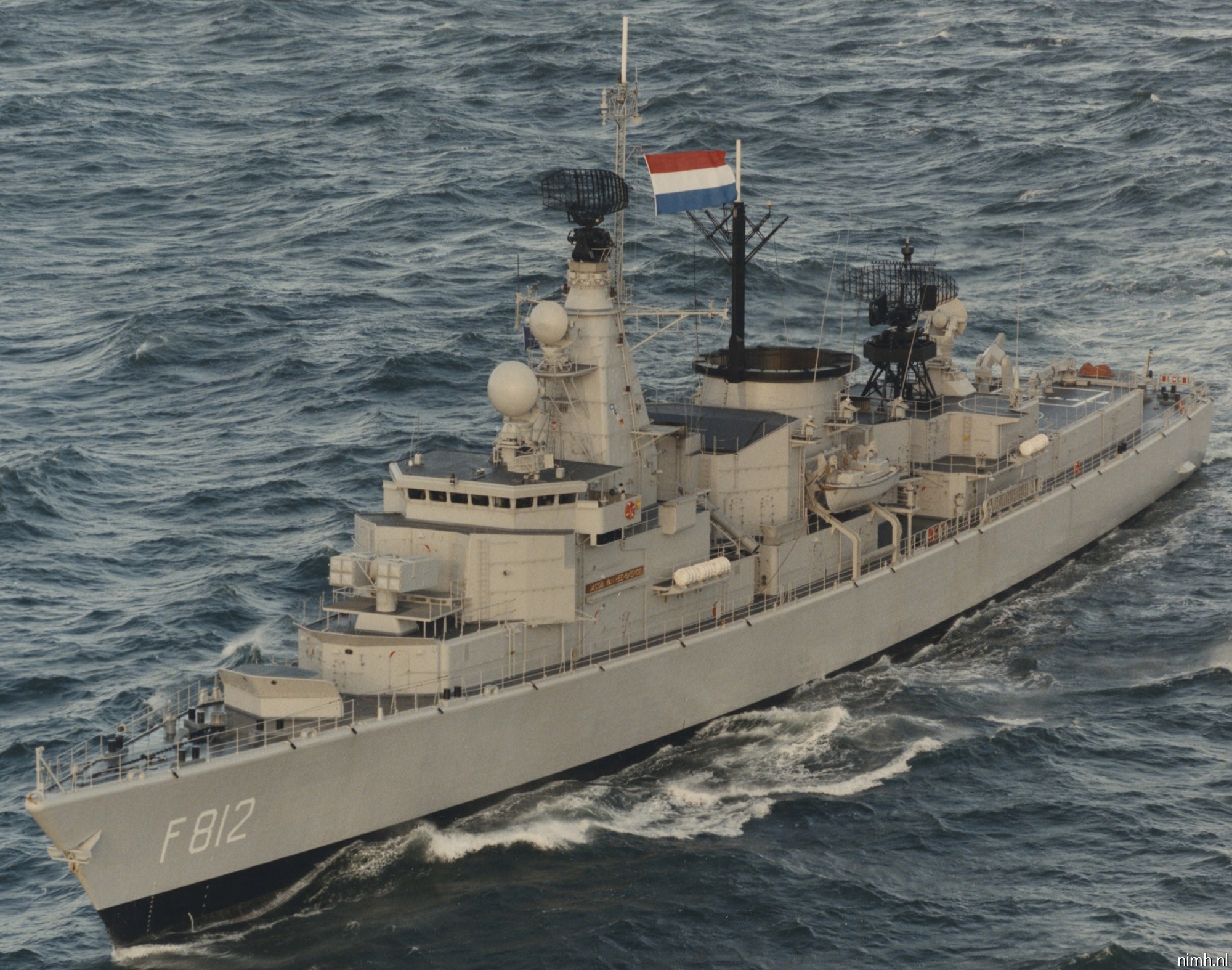 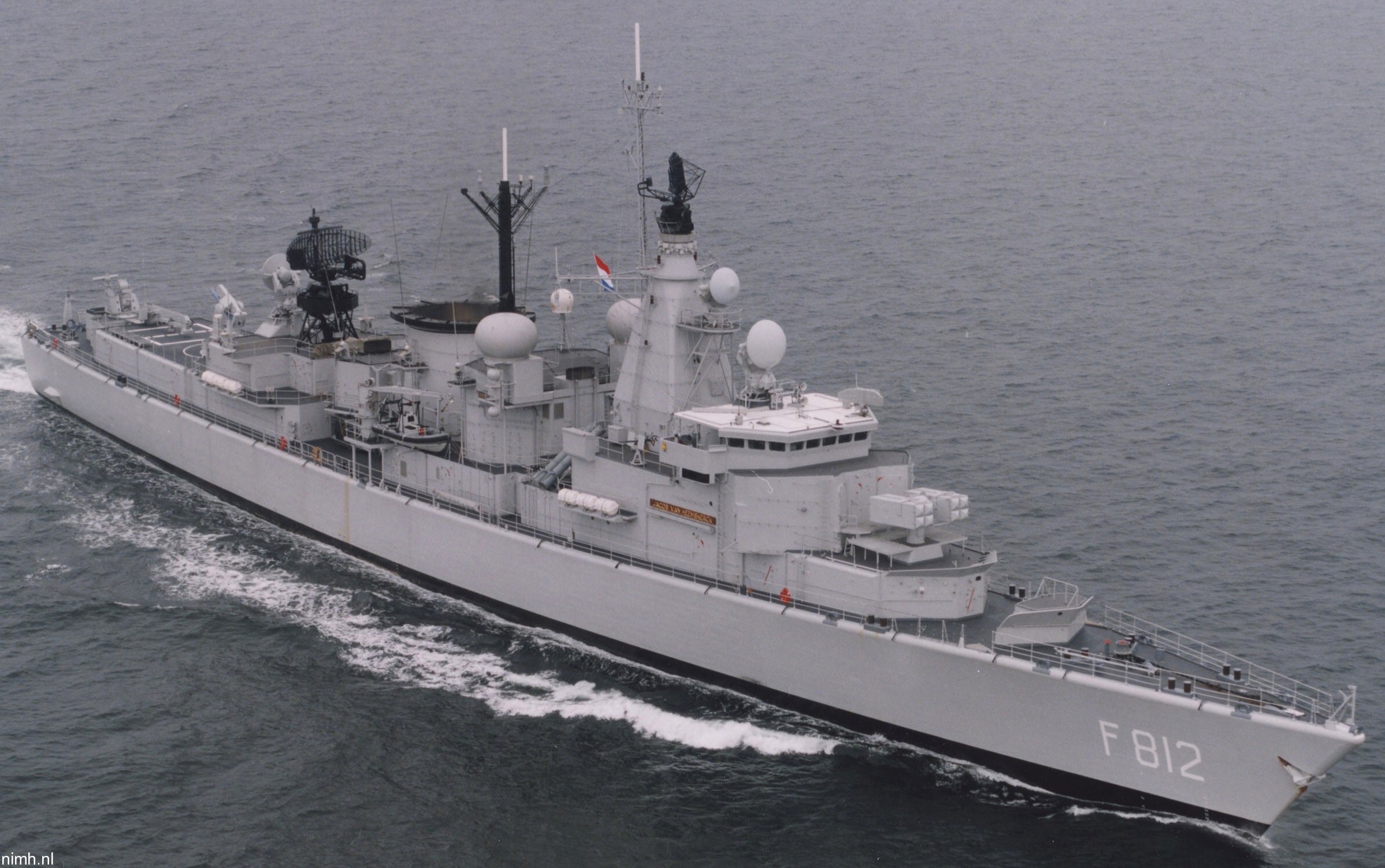 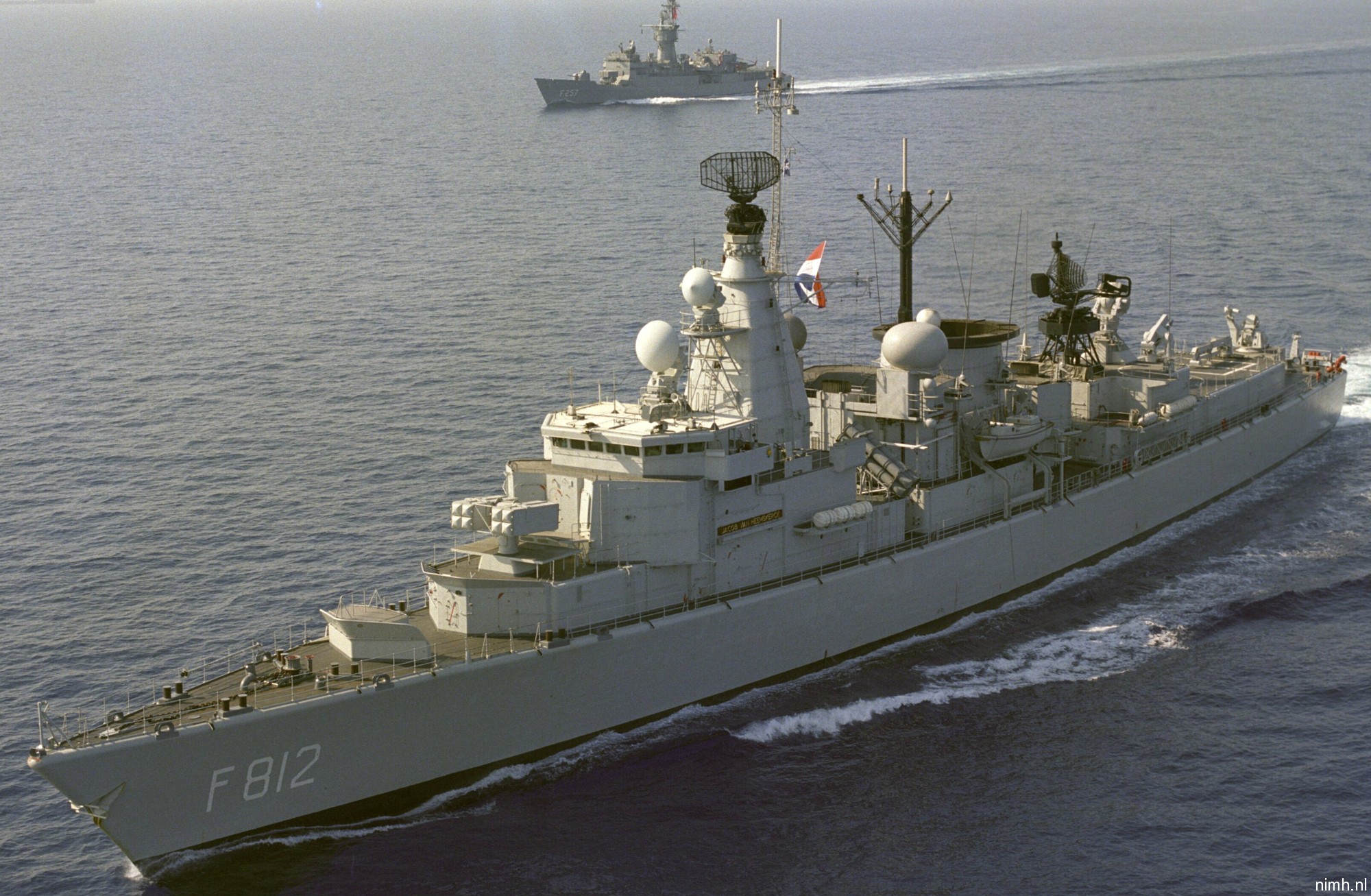 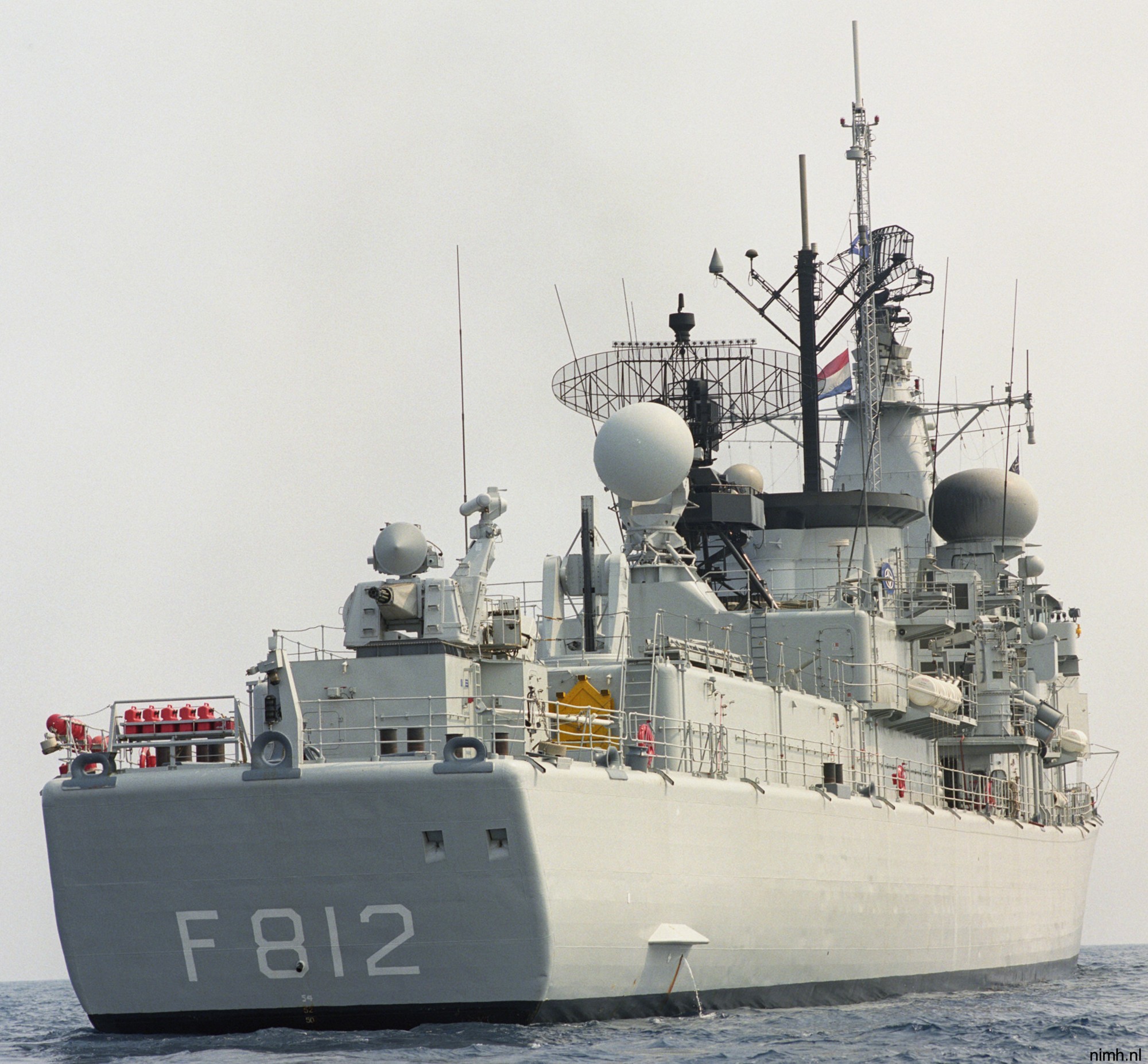 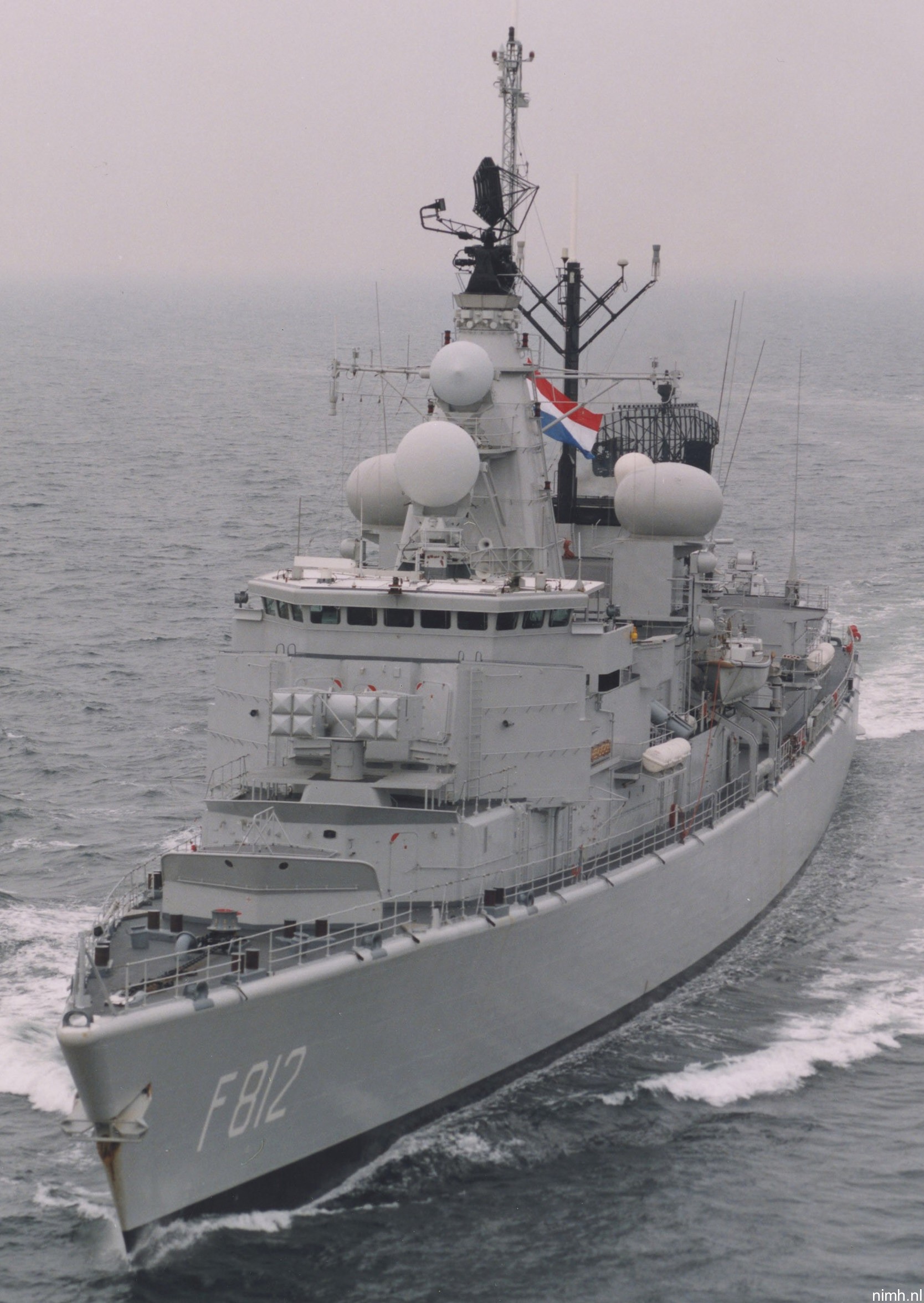 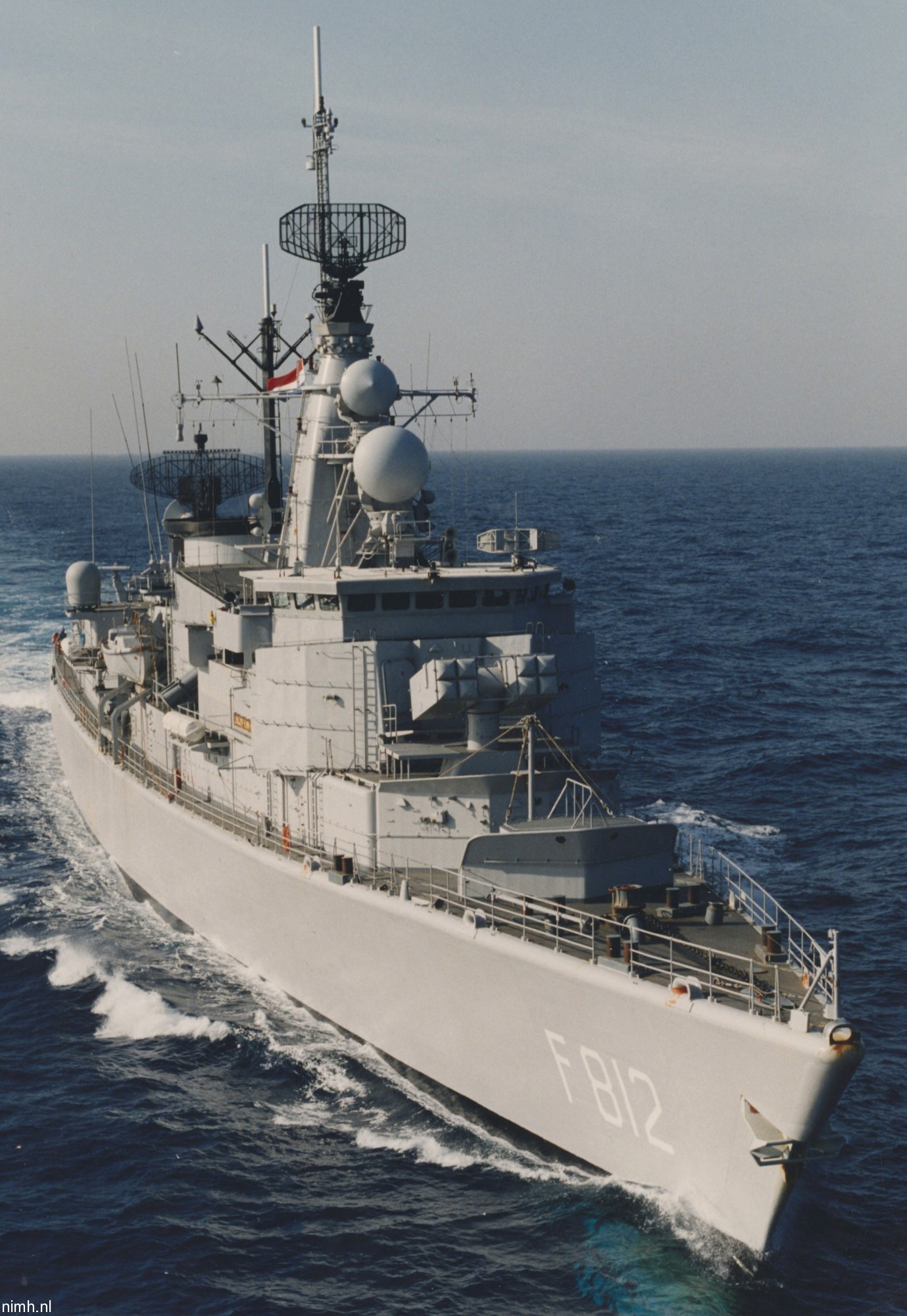 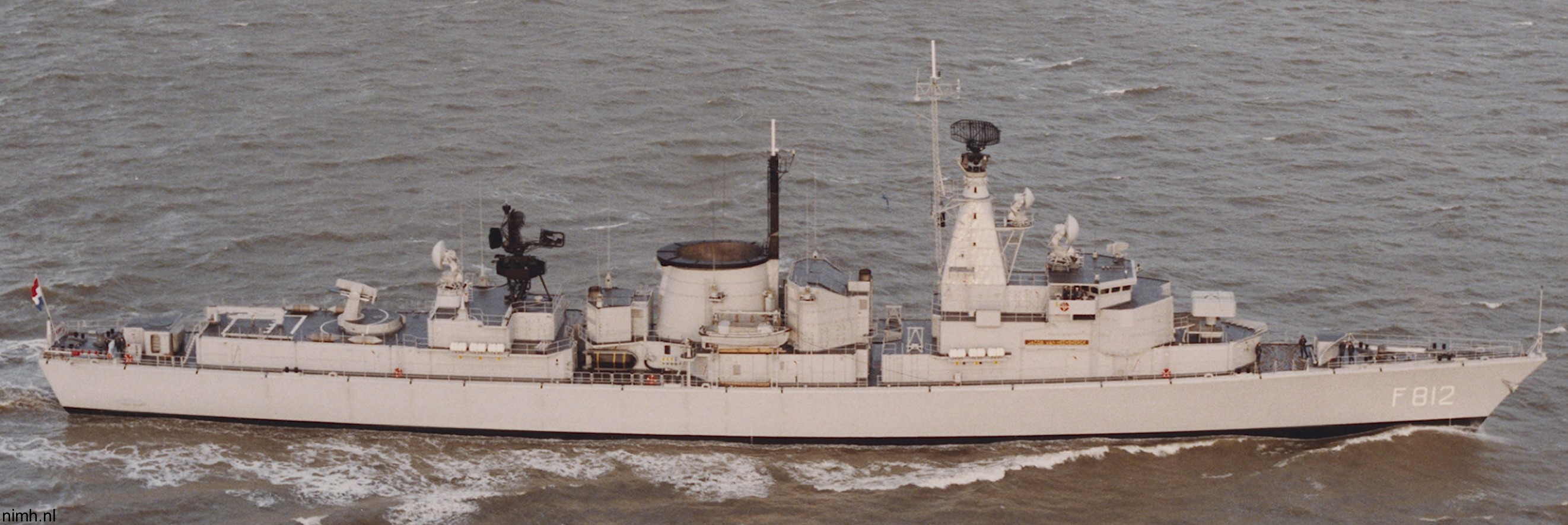 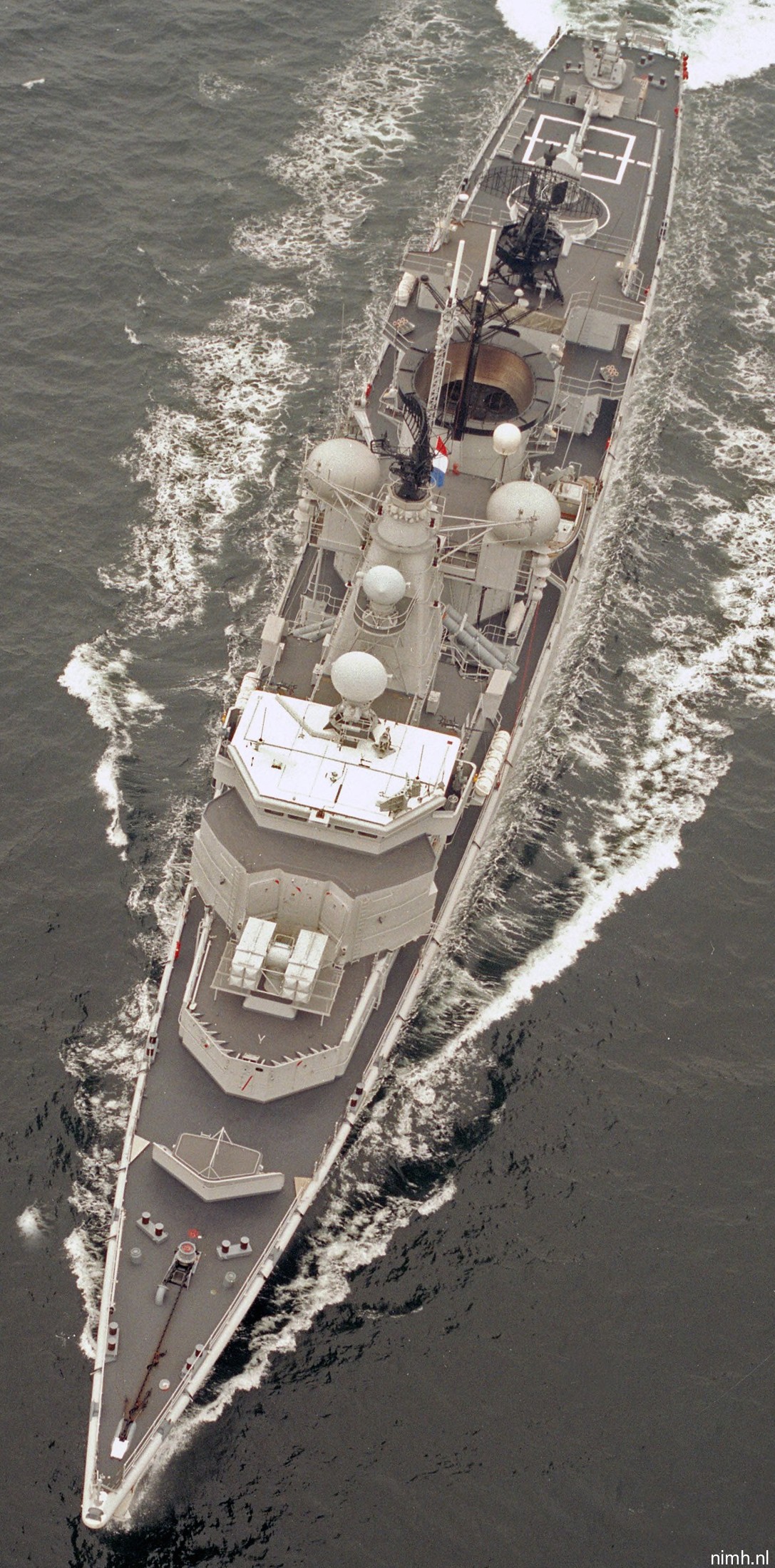 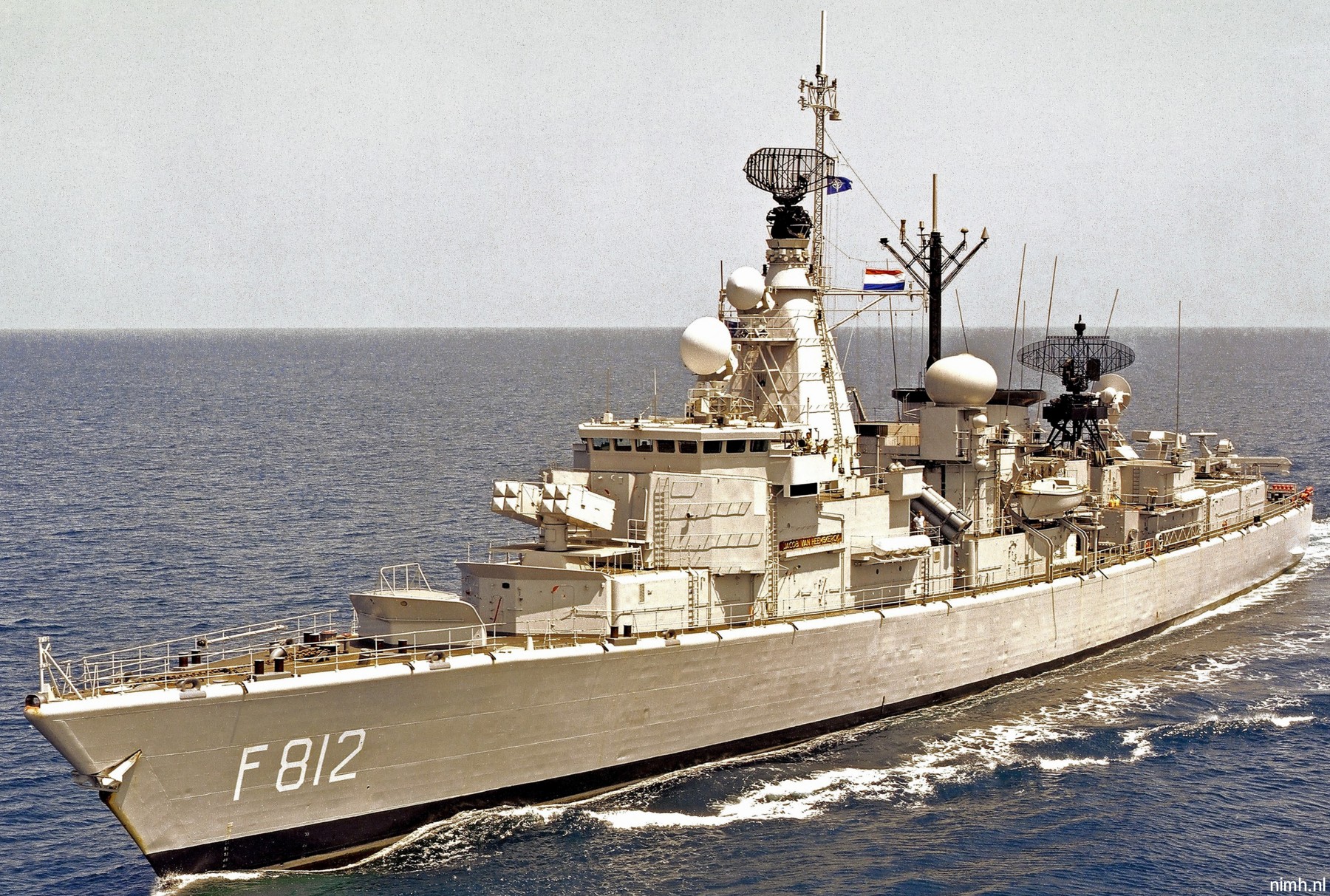 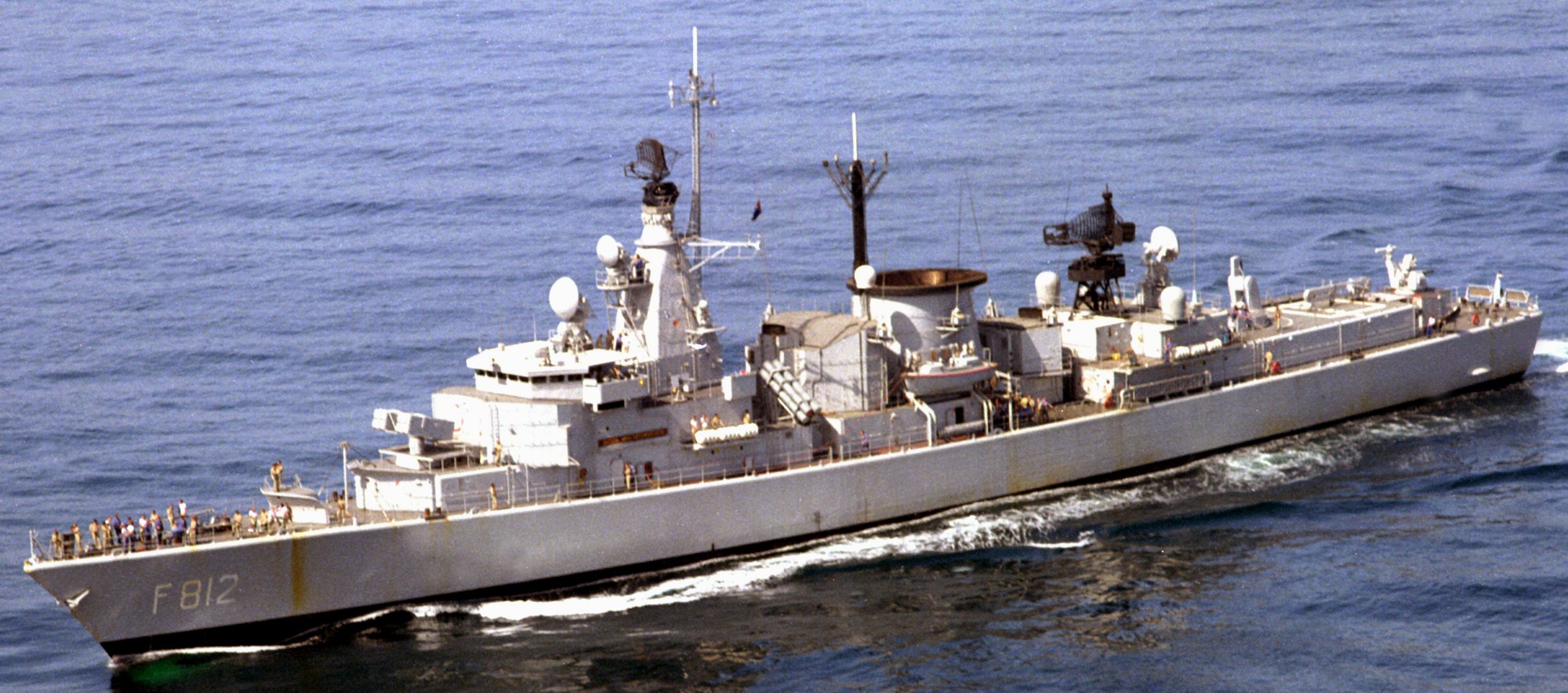 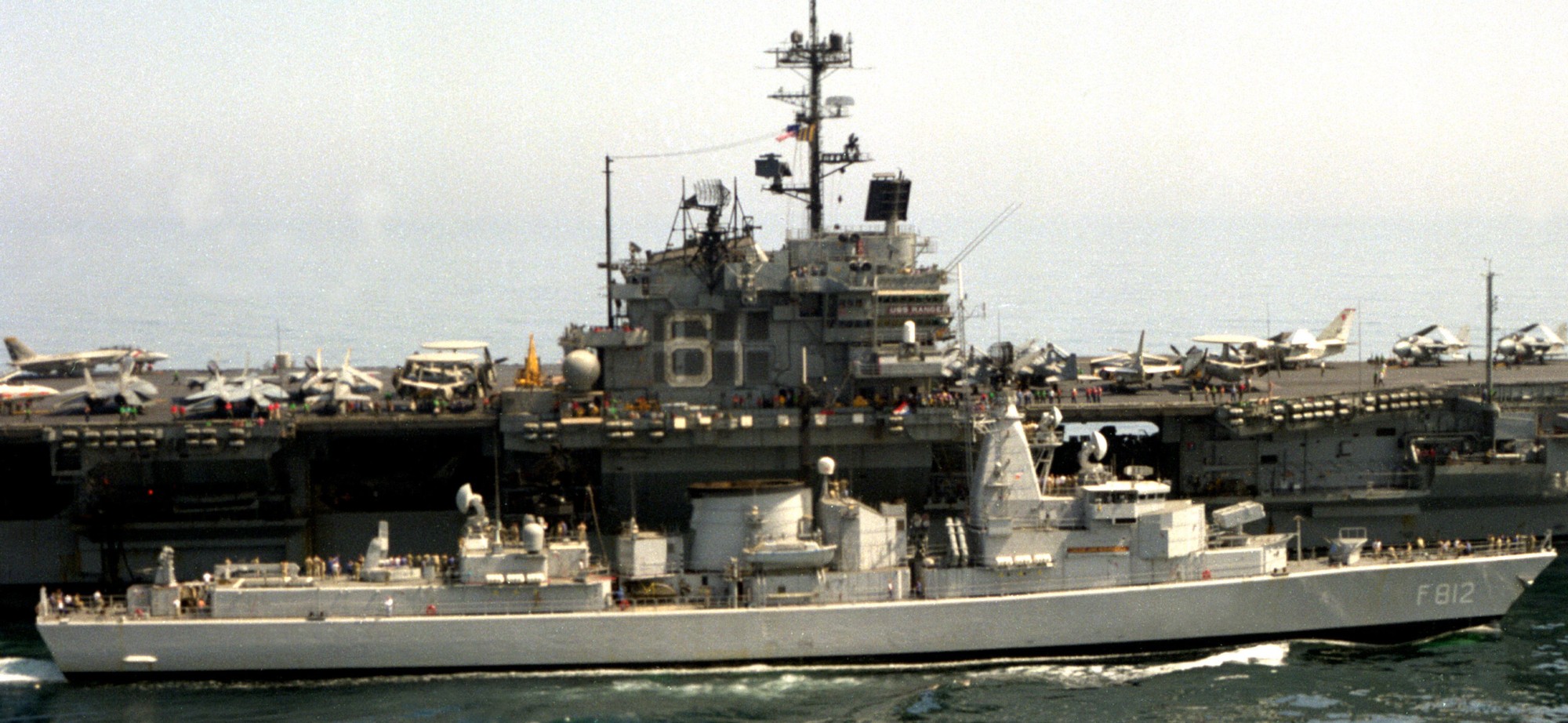 alongside USS Ranger (CV 61) - Operation Desert Storm - 1991 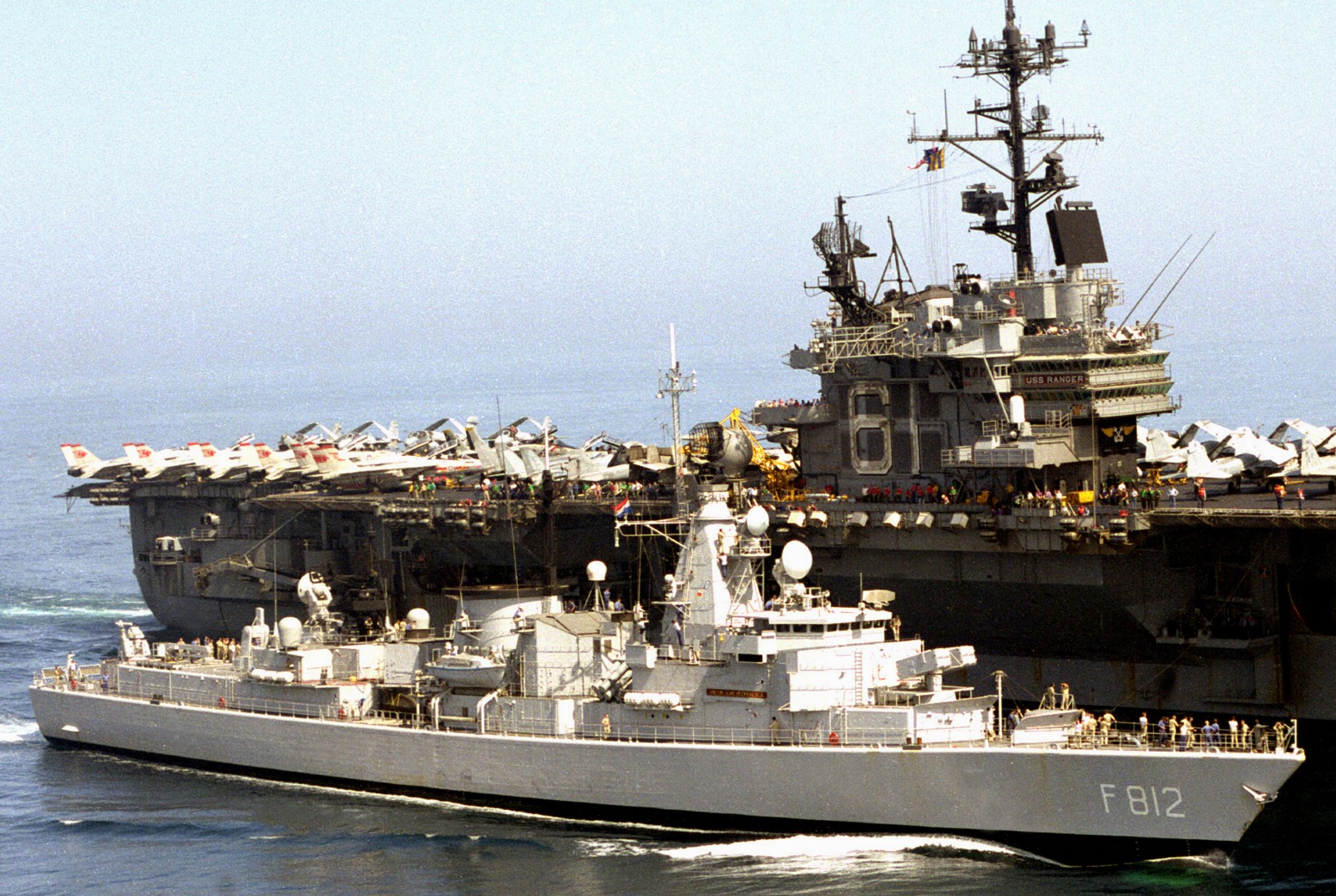 alongside USS Ranger (CV 61) - Operation Desert Storm - 1991  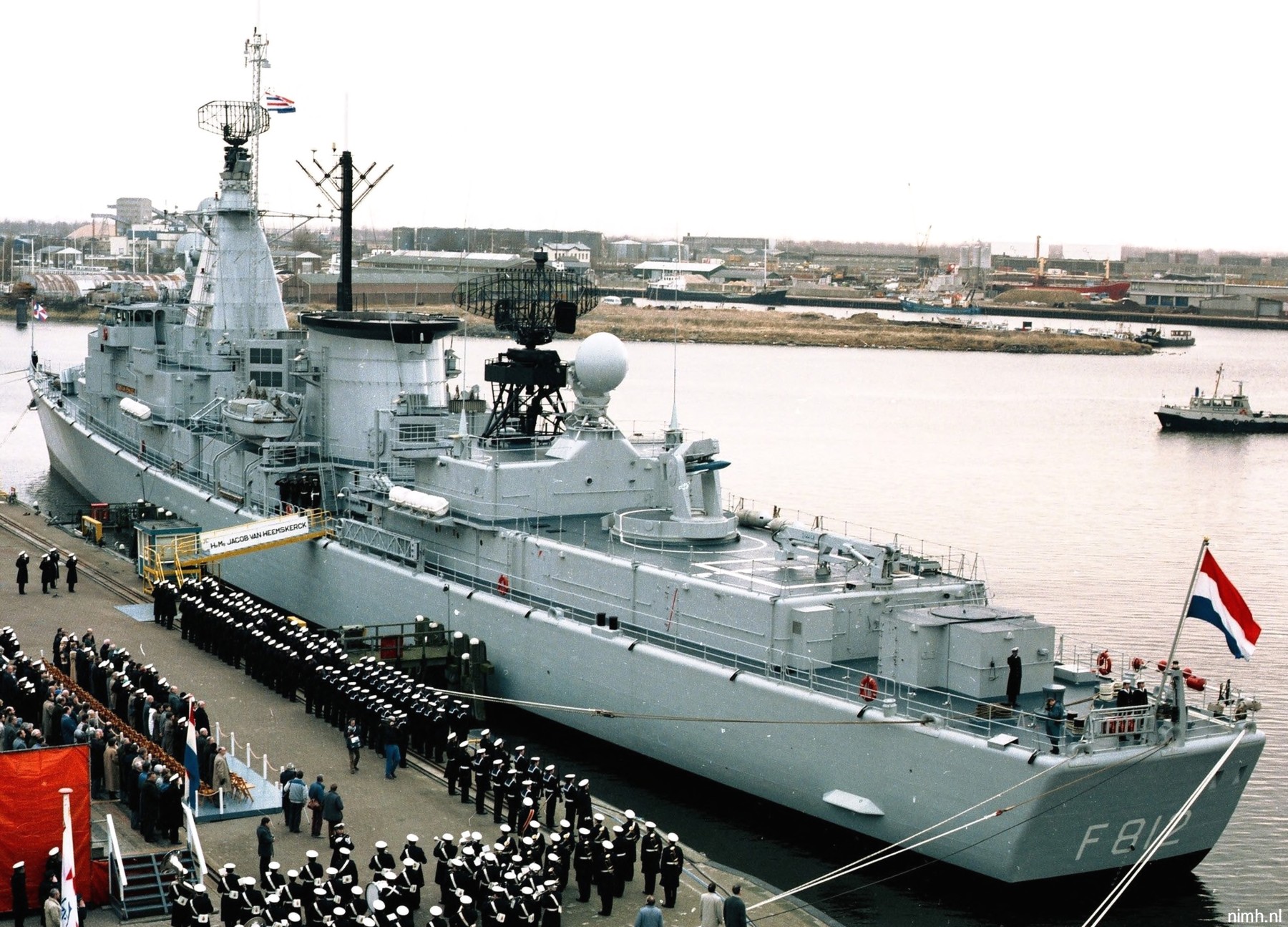 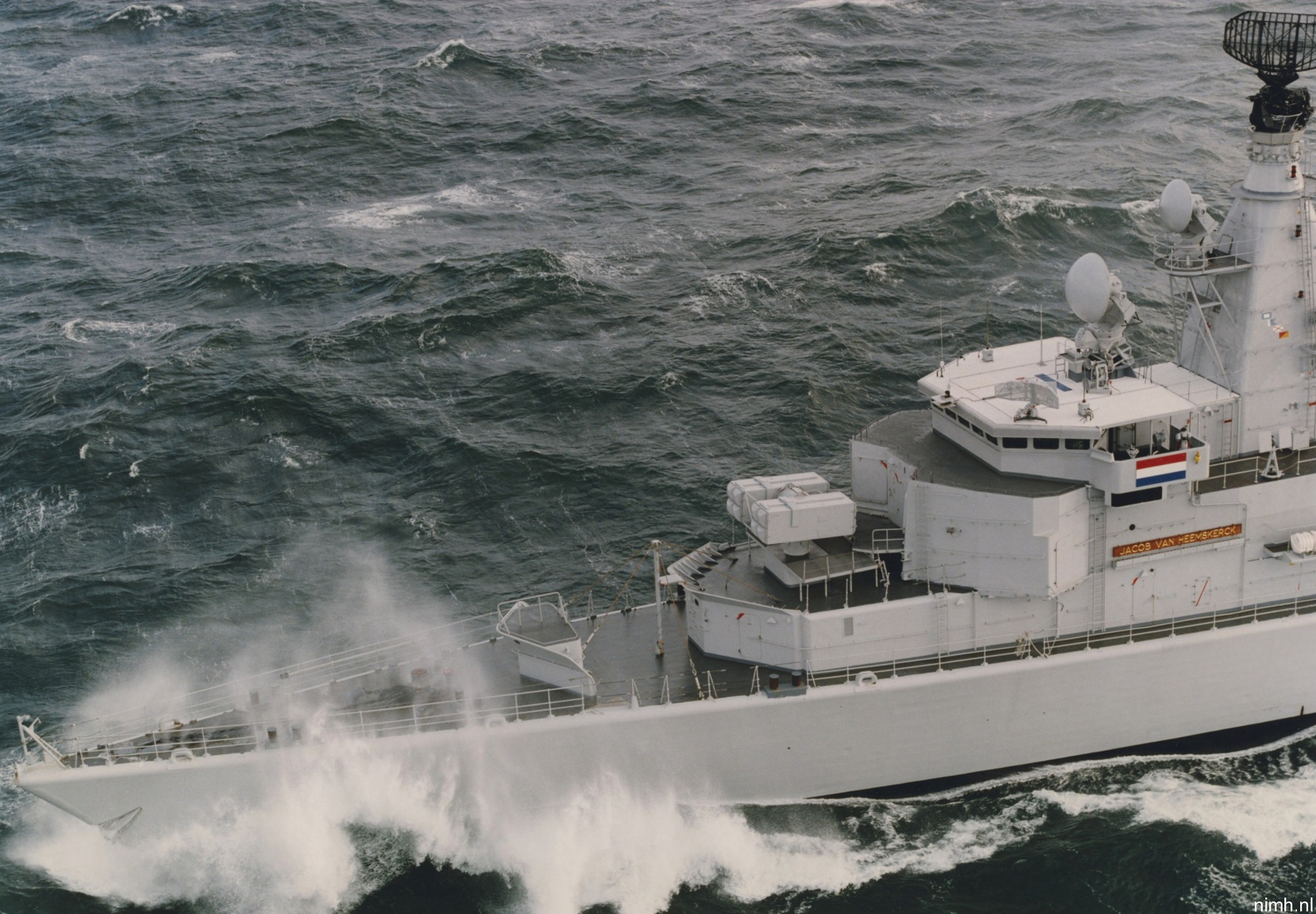 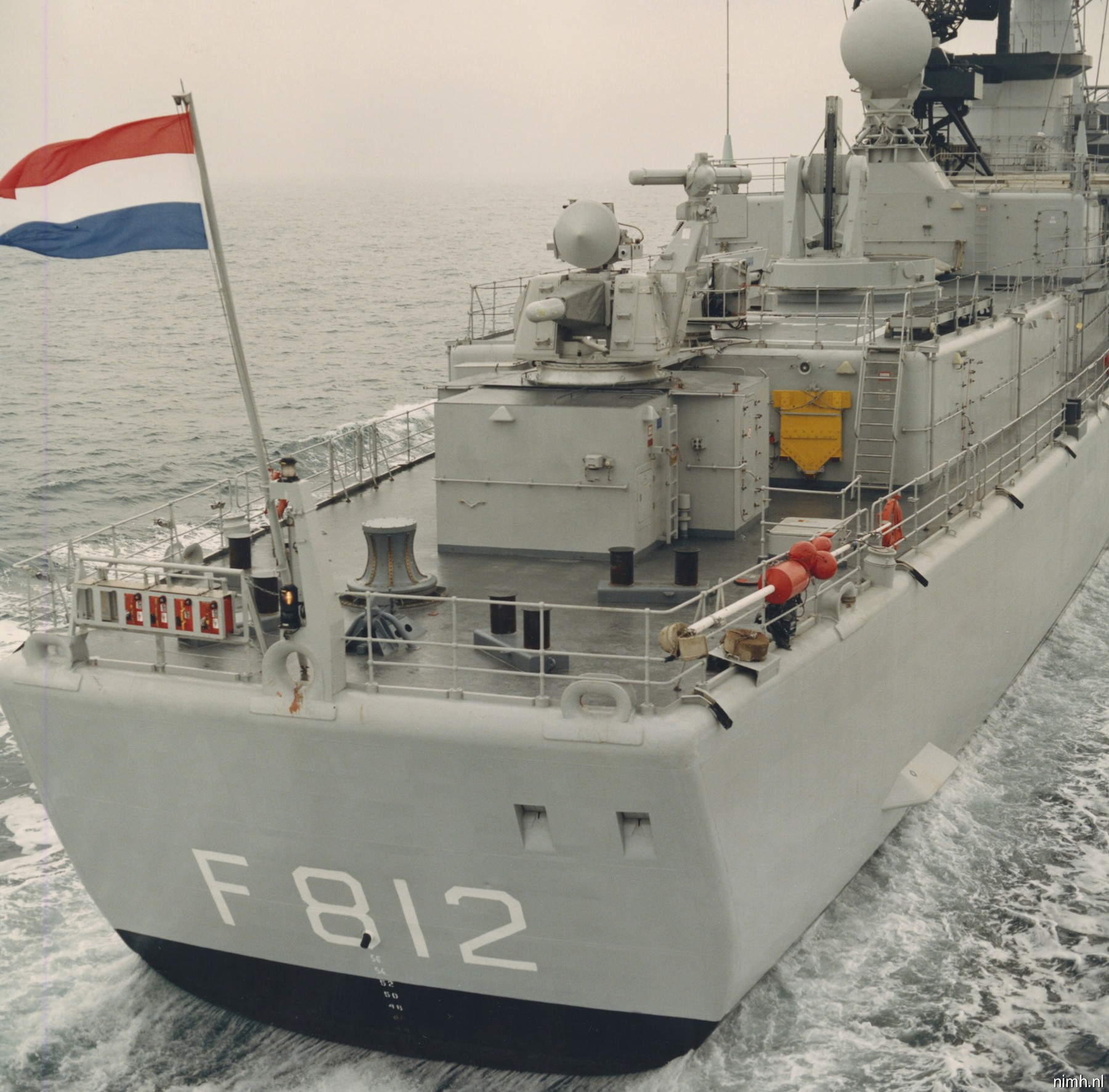 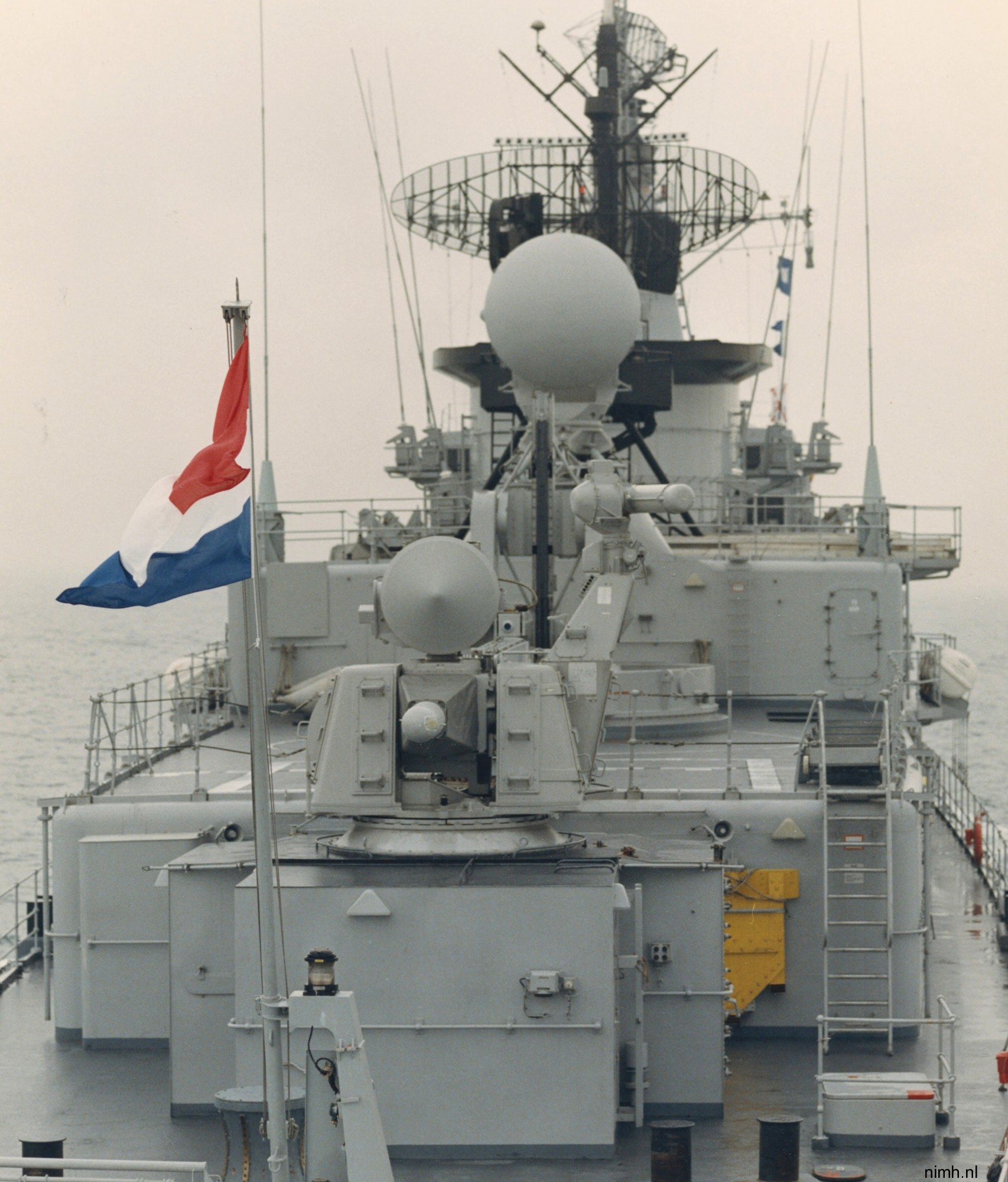 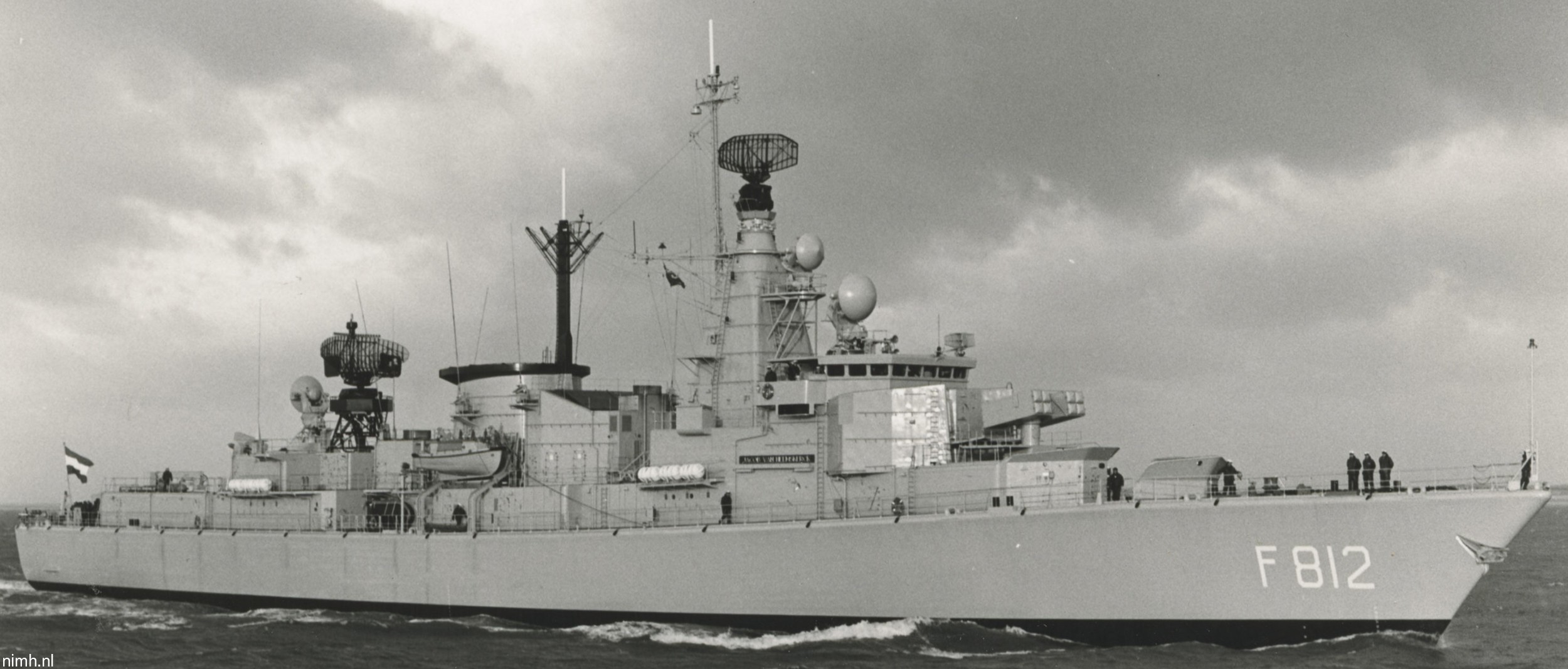 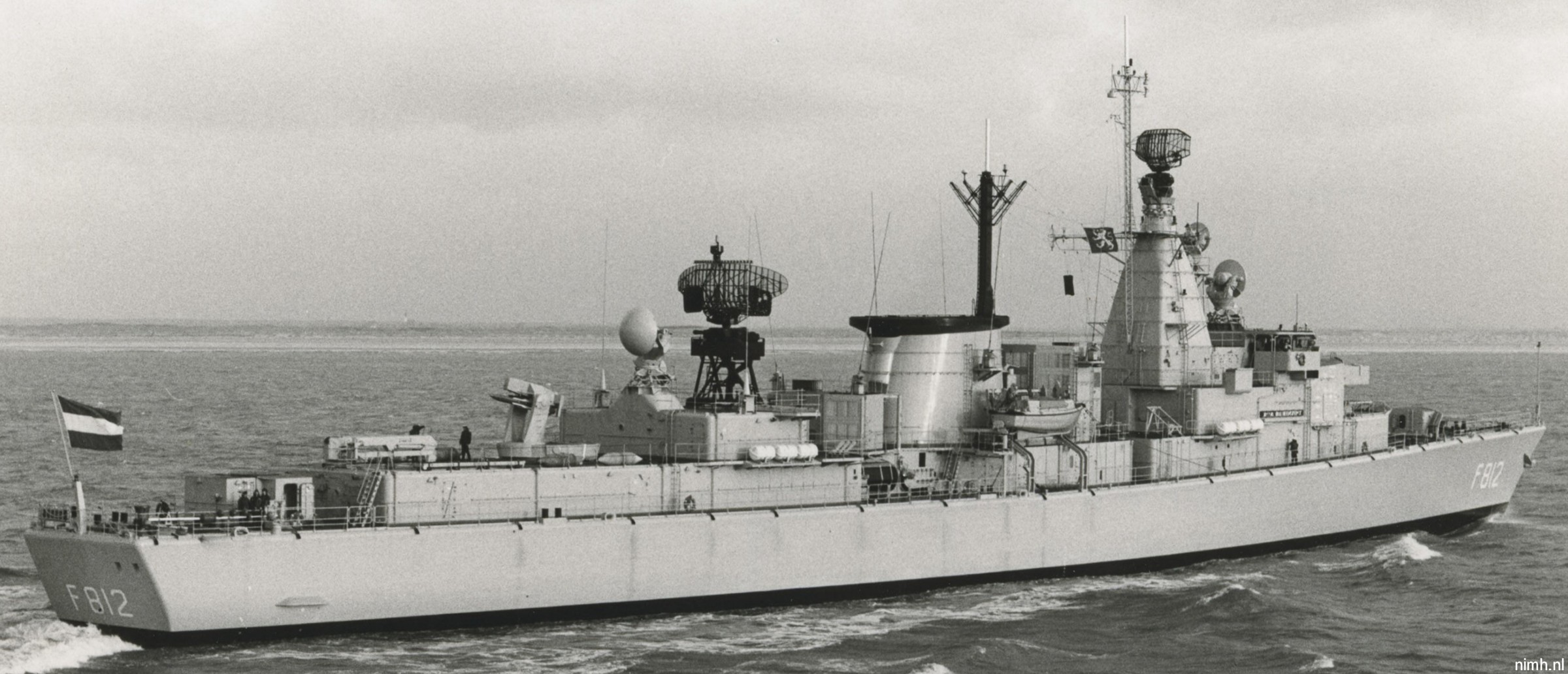 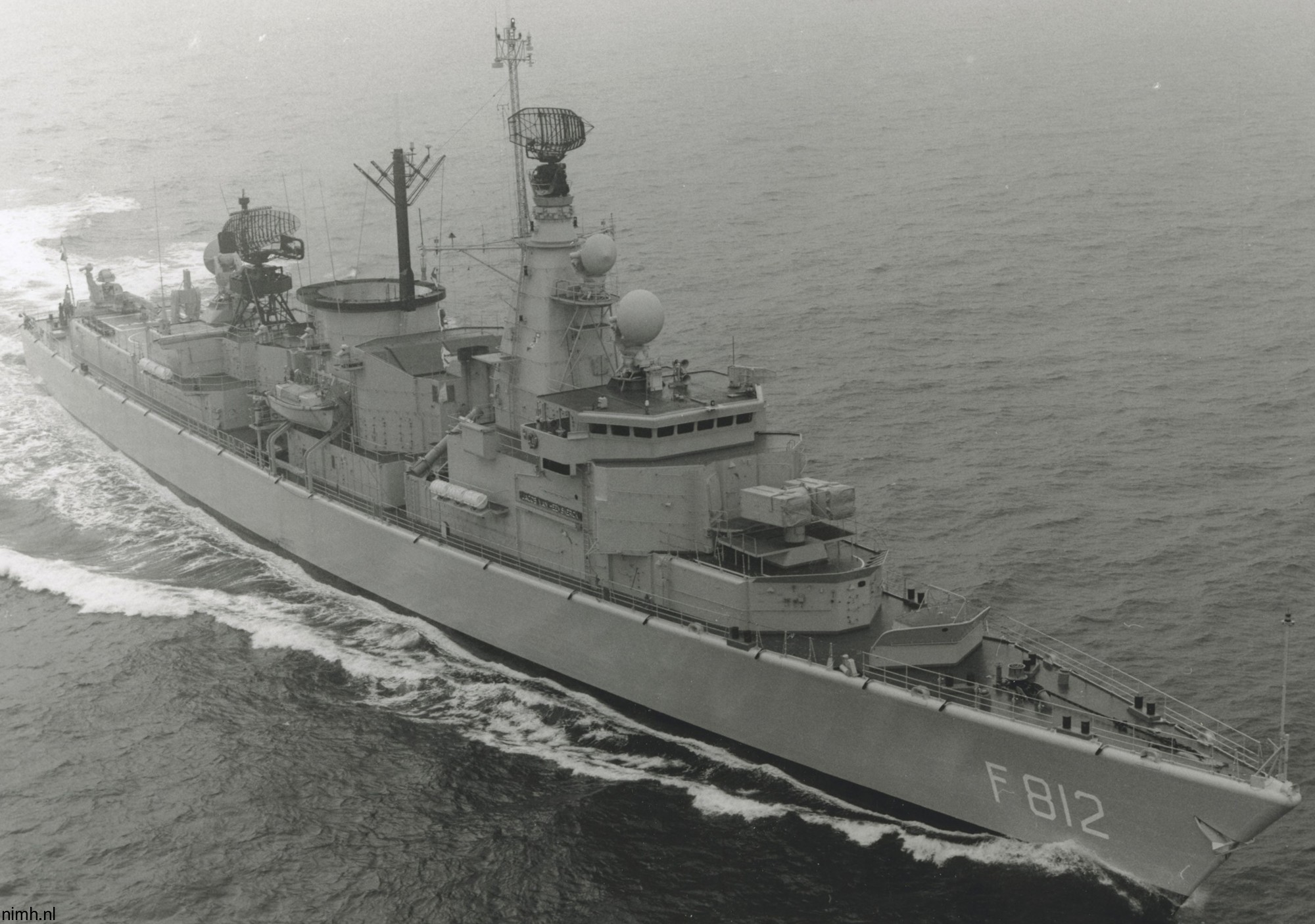 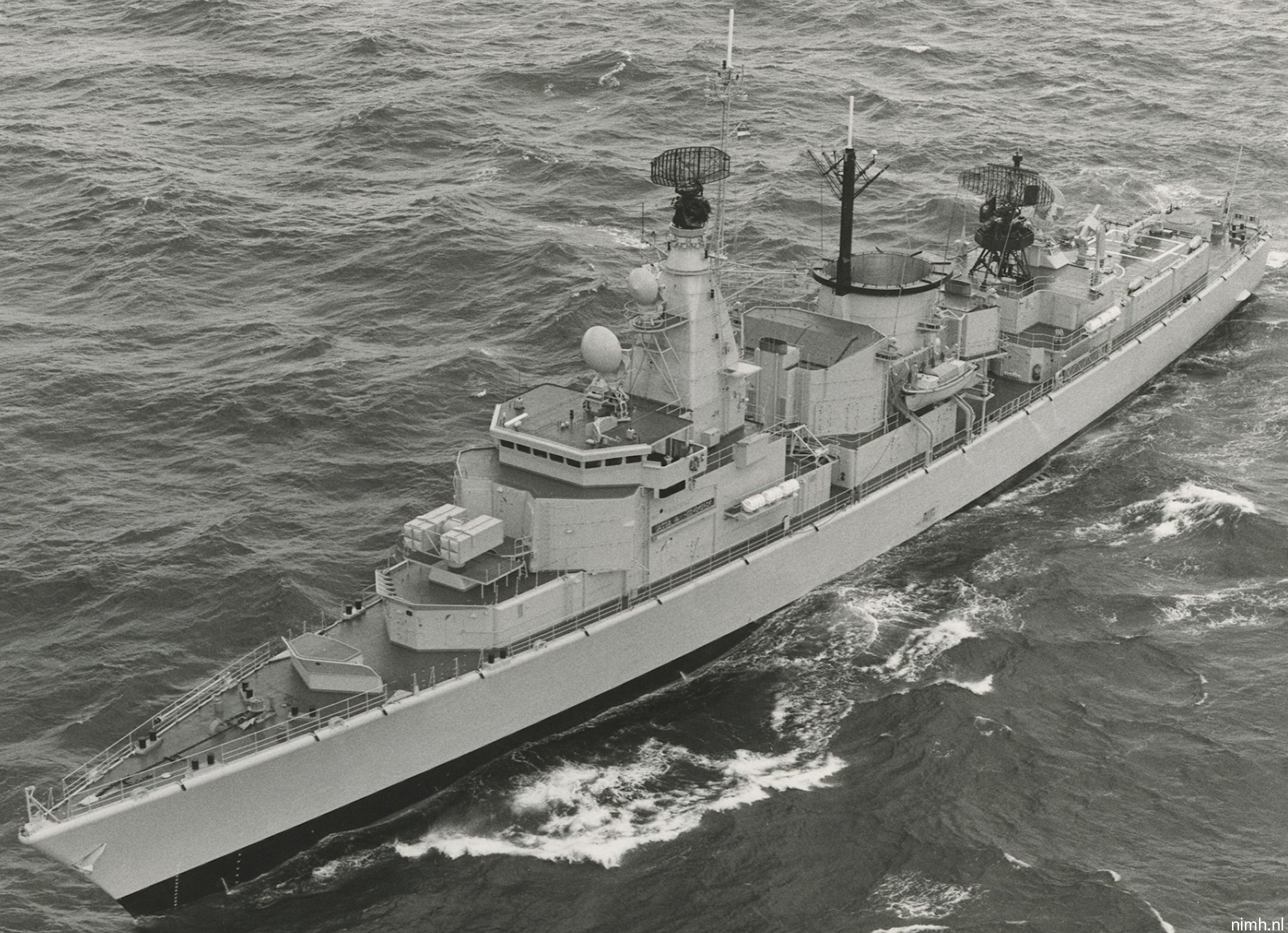 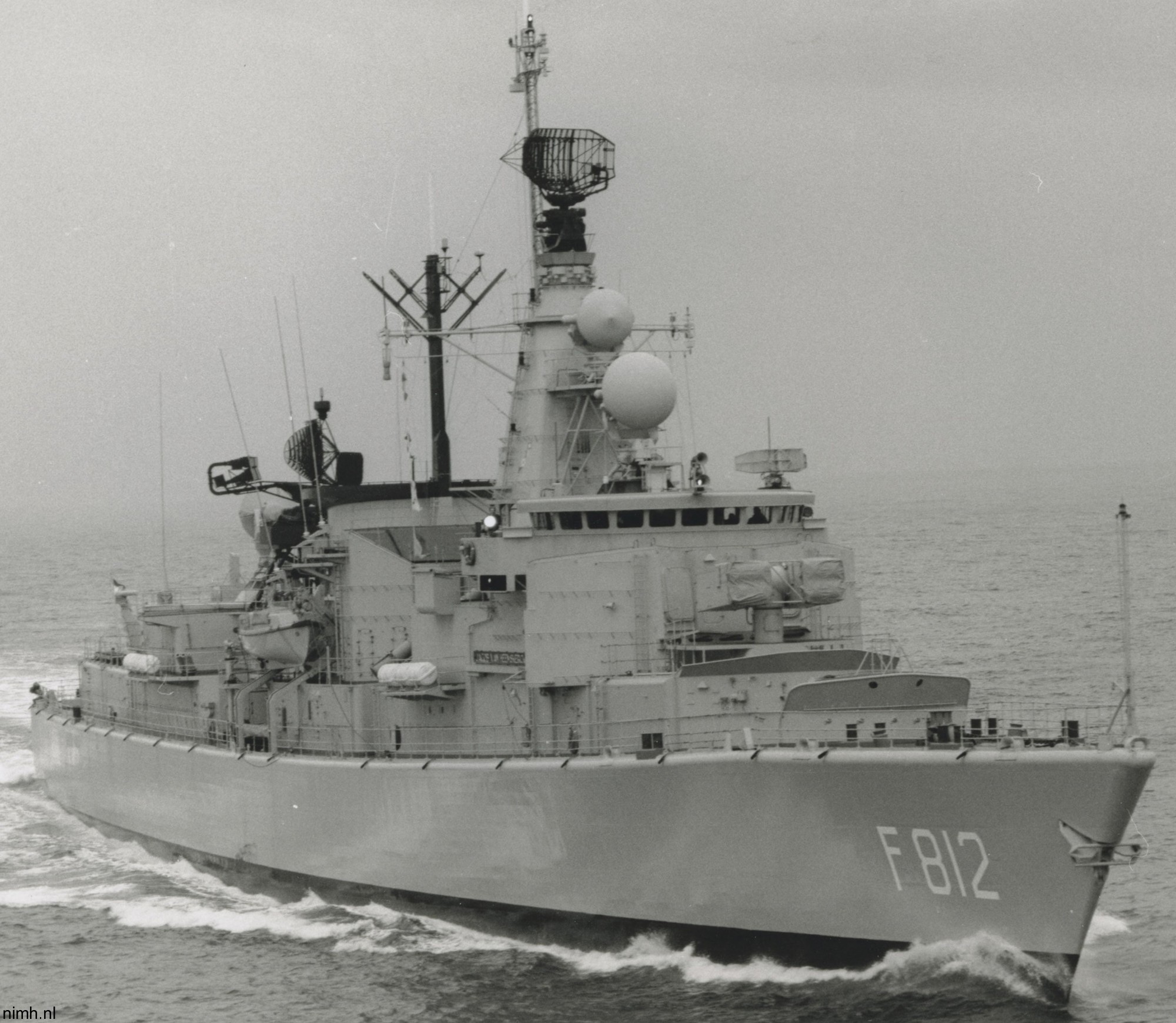 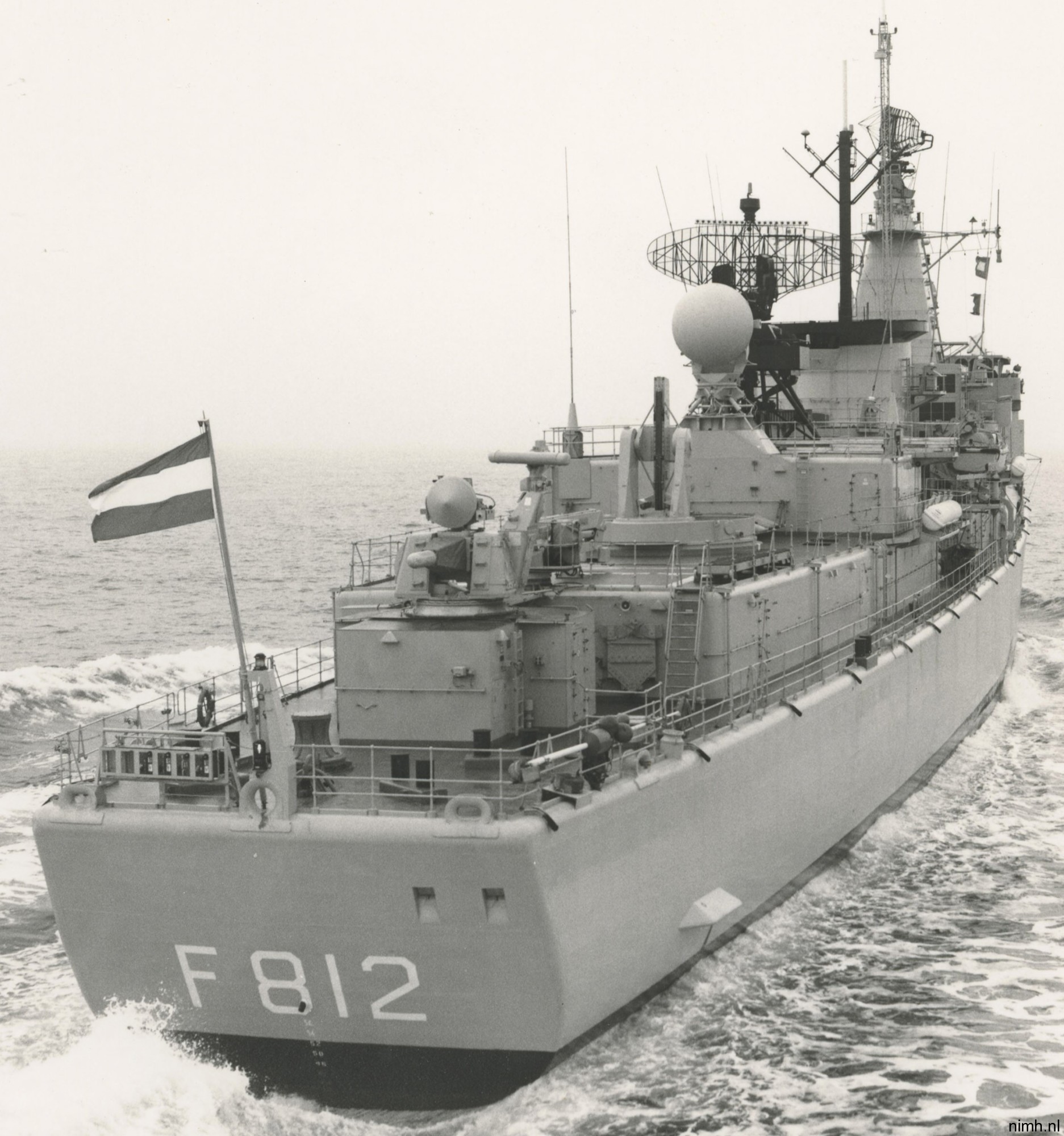 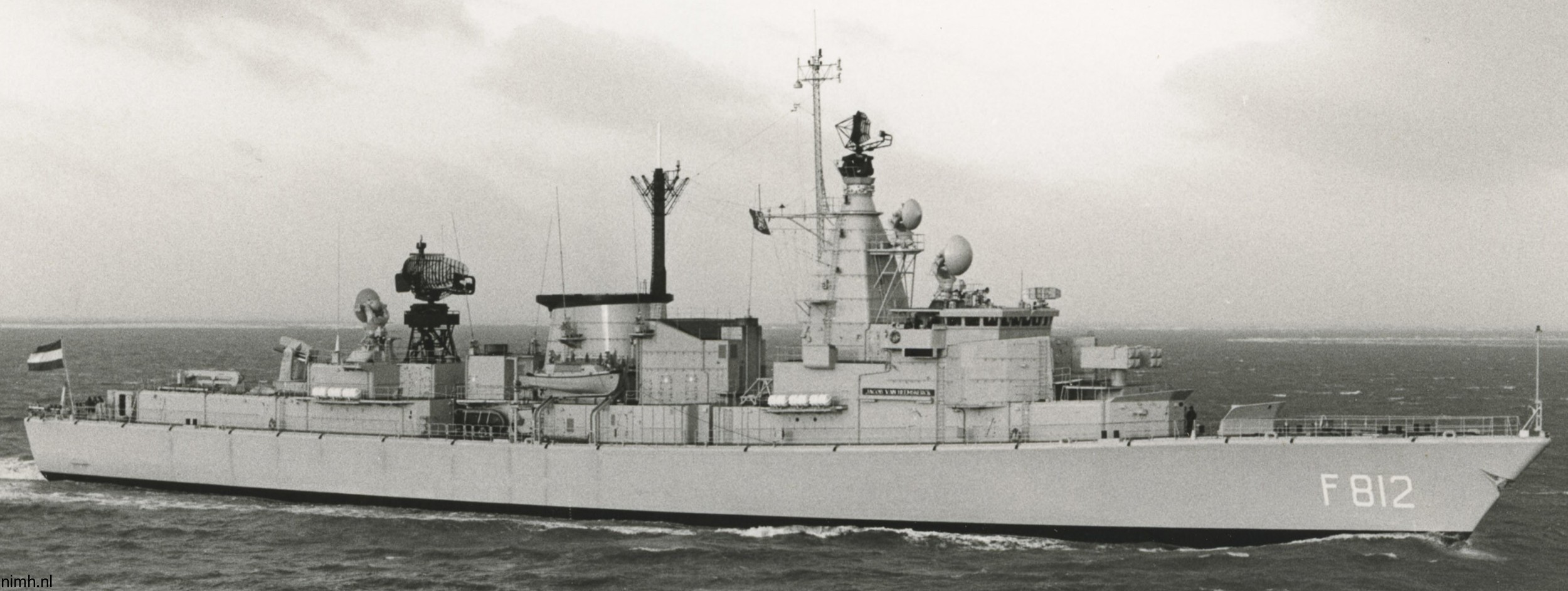 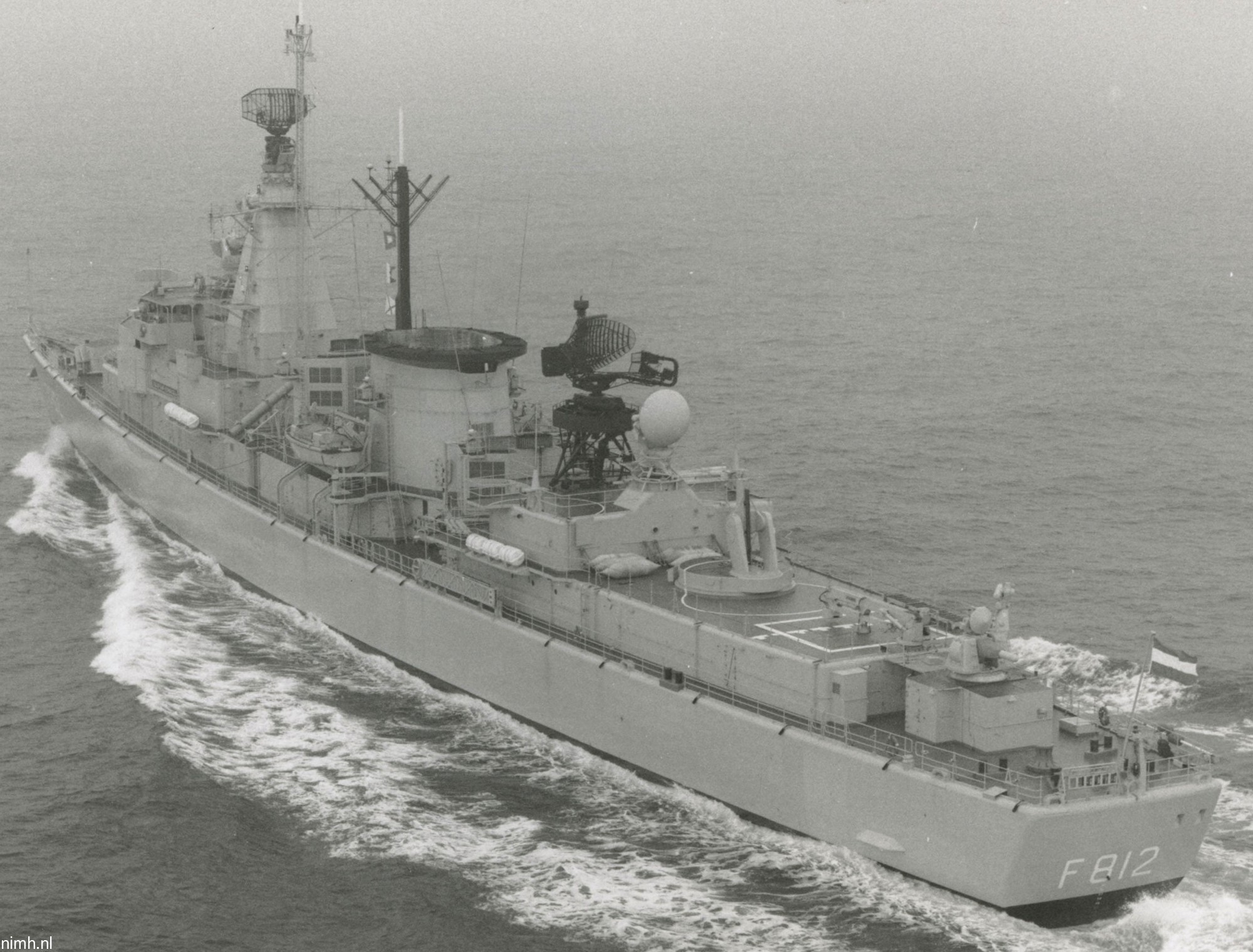   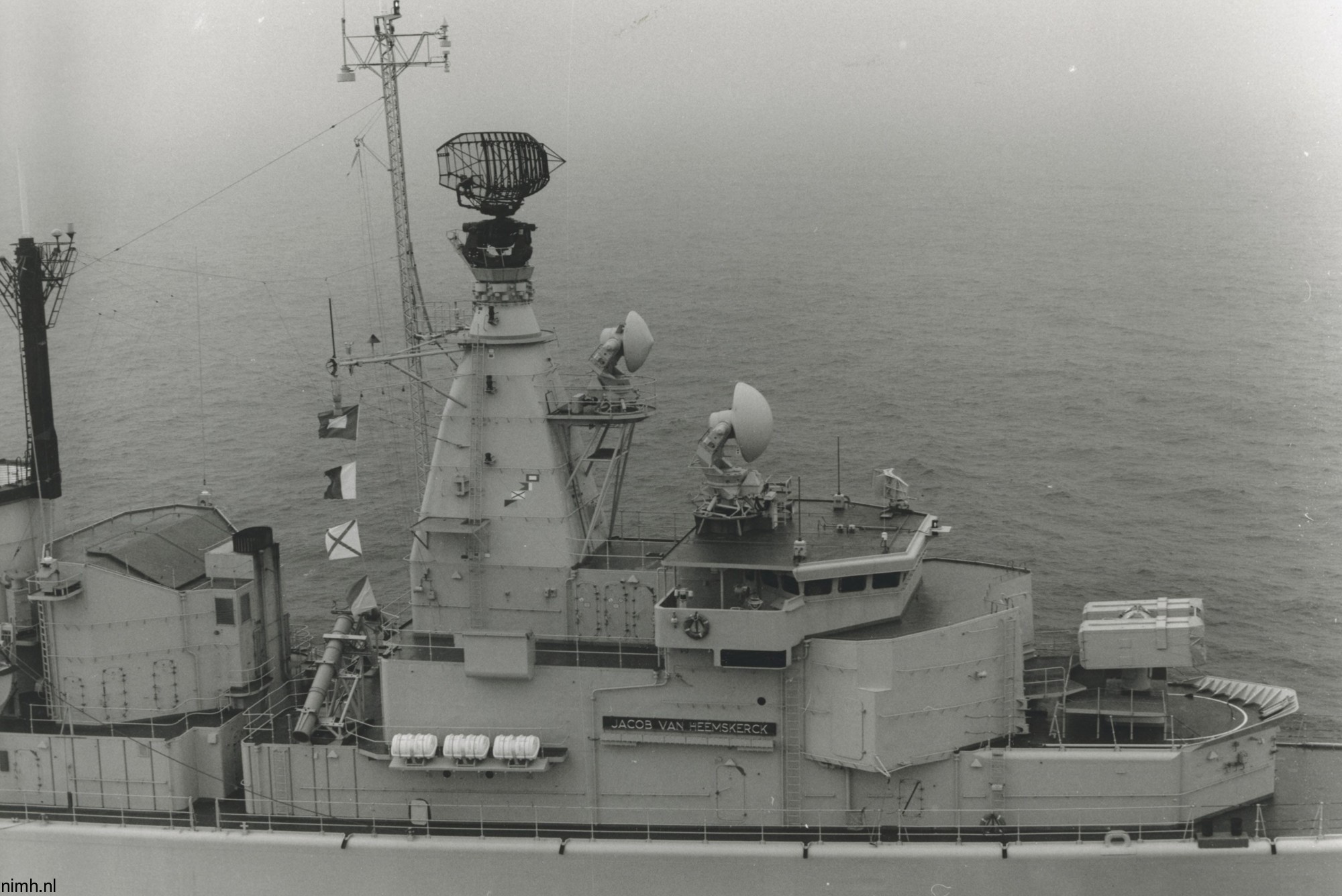 |
||
|
HNLMS Jacob van Heemskerck (F 812): ... service history wanted. |
||
|
|
||
|
Vice Admiral Jacob van Heemskerck (March 13, 1567 - April
25, 1607): Jacob van Heemskerk (born: March 13, 1567 in Amsterdam / died: April 25, 1607 in the Bay of Gibraltar) was a Dutch explorer and later admiral commanding the Dutch fleet at the Battle of Gibraltar. Arctic exploration Van Heemskerk's early fame arose from an attempts to discover an Arctic passage from Europe to China. Two vessels sailed from Amsterdam on the 10th May 1596, under the command of van Heemskerck and Jan Rijp. Willem Barents accompanied Heemskerck as pilot, and Gerrit de Veer, the historian of the voyage, was on board as mate. The masses of ice in the straits leading to the Kara Sea, and the impenetrable nature of the pack near Novaya Zemlya, had suggested the advisability of avoiding the land and, by keeping a northerly course, of seeking a passage in the open sea. They sailed northwards, and on the 9th of June discovered Bear Island in the Barents Sea. Continuing on the same course they sighted a mountainous snow-covered land in about 80 N. lat., soon afterwards being stopped by the polar pack ice. This important discovery was named Svalbard (also known as Spitsbergen), and was believed (incorrectly) to be a part of Greenland. Arriving at Bear Island again on the 1st of July, Rijp parted company, while Heemskerck and Barents proceeded eastward, intending to pass round the northern extreme of Novaya Zemlya. On the 26th of August they reached Ice Haven, after rounding the northern extremity of the land. Here their vessel became anchored in ice and they wintered in a house built out of driftwood and planks from the tween decks and the deck-house of the vessel. On June 13 they made their way in two open boats to the Lapland coast; but Barents died during the voyage, on June 20. This was the first time that an arctic winter was successfully faced; The voyage stands in the first rank among the polar enterprises of the 16th century, and led to a flourishing whale and seal fisheries which long enriched the Netherlands. Gibraltar Van Heemskerck later served as a vice admiral, protecting Dutch merchant shipping on voyages to China and the East Indies, and died as a result of leg wounds caused by cannonball, shortly after the Battle of Gibraltar, an engagement in which a Spanish fleet of 21 vessels was entirely destroyed. His body was returned to Amsterdam to be buried with full honours in the old Church. His suit or armour - minus a thigh plate shattered by the fatal cannonball - is in the Rijksmuseum in Amsterdam.
|
||
| patches + more | ||
|
|
seaforces.org
|
Royal Netherlands
Navy start page
| |
